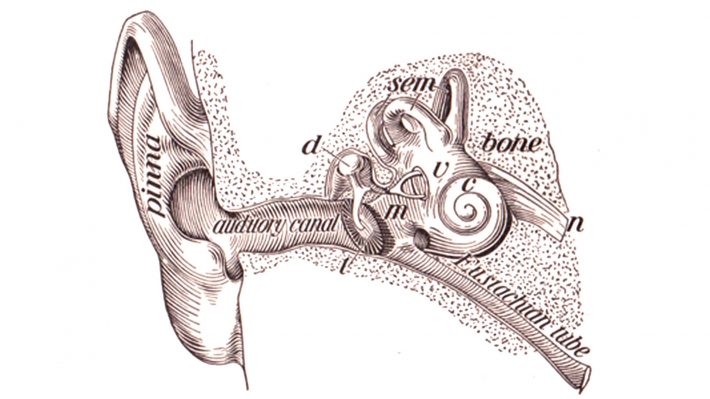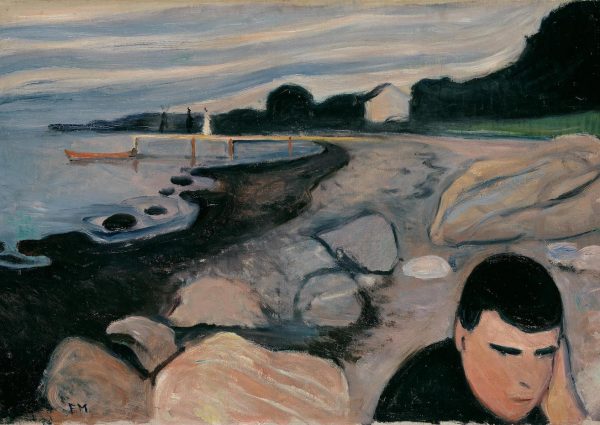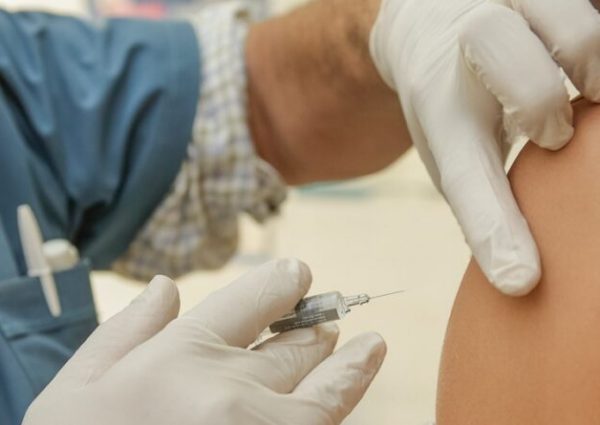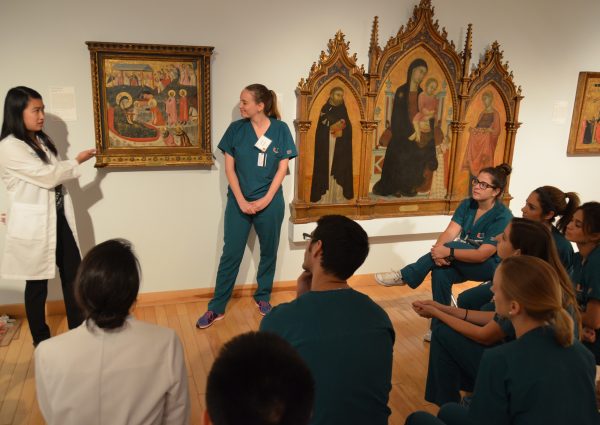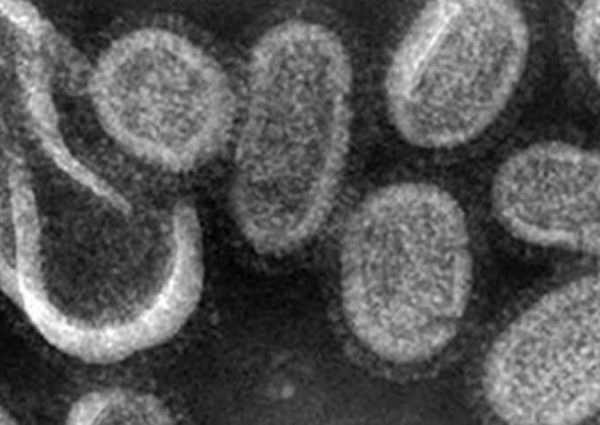Listen*:
Transcript:
I.
Admitted to the hospital again.
The second bout of pneumocystis back
In January almost killed him; then,
He’d sworn to us he’d die at home. He baked
Us cookies, which the student wouldn’t eat,
Before he left–the kitchen on 5A
Is small, but serviceable and neat.
He told me stories: Richard Gere was gay
And sleeping with a friend of his, and AIDS
Was an elaborate conspiracy
Effected by the government. He stayed
Four months. He lost his sight to CMV.
II.
One day, I drew his blood, and while I did
He laughed, and said I was his girlfriend now,
His blood-brother. “Vampire-slut,” he cried,
“You’ll make me live forever!” Wrinkled brows
Were all I managed in reply. I know
I’m drowning in his blood, his purple blood.
I filled my seven tubes; the warmth was slow
To leave them, pressed inside my palm. I’m sad
Because he doesn’t see my face. Because
I can’t identify with him. I hate
The fact that he’s my age, and that across
My skin he’s there, my blood-brother, my mate.
III.
He said I was too nice, and after all
If Jodie Foster was a lesbian,
Then doctors could be queer. Residual
Guilt tingled down my spine. “OK, I’m done,”
I said as I withdrew the needle from
His back, and pressed. The CSF was clear;
I never answered him. That spot was framed
In sterile, paper drapes. He was so near
Death, telling him seemed pointless. Then, he died.
Unrecognizable to anyone
But me, he left my needles deep inside
His joking heart. An autopsy was done.
IV.
I’d read to him at night. His horoscope,
The New York Times, The Advocate ;
Some lines by Richard Howard gave us hope.
A quiet hospital is infinite,
The polished, ice-white floors, the darkened halls
That lead to almost anywhere, to death
Or ghostly, lighted Coke machines. I call
To him one night, at home, asleep. His breath,
I dreamed, had filled my lungs–his lips, my lips
Had touched. I felt as though I’d touched a shrine.
Not disrespectfully, but in some lapse
Of concentration. In a mirror shines
The distant moon.
Poet’s Commentary:
“The Distant Moon’ was written actually about a specific patient of mine and whenever I come back to it I’m reminded of two specific issues. One is how much our patients actually care for us in medicine. This was a patient of mine when I was a resident, the patient I speak of in the poem. He was quite ill, as the poem describes, and yet he was still able to give of himself to me as I tried in the craziness of internship to help take care of him–to the point where he would put up with me coming into his room in the evenings and reading my own poetry to him, which I think is a true testament to his care of me, which was just intensely ironic. The other issue that I wanted to mention in connection with this poem, “The Distant Moon,” is that oftentimes I feel somewhat conflicted about writing specifically about patients. This particular poem, I think, underscores how important it is to give voice to experiences that patients may have in a way, I think, to empower them and to show how much we can learn from them. I’m very conscious of the privilege and the privacy, really, of the doctor-patient relationship, and yet again I sometimes feel compelled to write about specific patients because I think that they can teach us. Those experiences that they have can teach all of us about our own humanity, and I think that’s a kind of permission that really does enable me to explore some of these very personal and close relationships in a way that’s valuable.”
*”The Distant Moon” used with the permission of Rafael Campo and the publisher of The Other Man Was Me: A Voyage to the New World by Rafael Campo (Houston: Arte Publico Press-University of Houston, 1994); no downloading permitted.
Audio and text of commentary reproduced with the permission of Rafael Campo, 1996.

